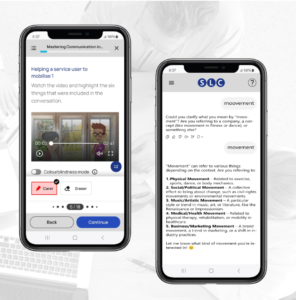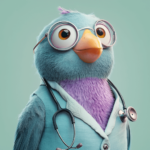
SLC win Ufi grant to develop AI language learning app for social carers
We’re delighted to have won a grant from Ufi VocTech Trust to develop an AI-driven technology solution that provides cheap phone-based language and communication skills

As technology continues to advance, language learning tools are becoming increasingly sophisticated.
Among them, ChatGPT, an AI-powered language model, has gained popularity for its ability to generate human-like responses.
However, it is essential to recognise the limitations and potential risks when it comes to relying on ChatGPT for English language acquisition, particularly for healthcare professionals.
In this article, we will delve into these risks, emphasising the model’s reliance on web-based information rather than official sources, the potential for inaccuracies, and the importance of validating medical knowledge from trusted sources.
One significant concern with ChatGPT is that it does not base its knowledge on official information sources.
Instead, it relies on the vast amount of data available on the web.
While this allows the model to access a wide range of information, it also means that the accuracy and reliability of the responses are not guaranteed.
Healthcare professionals require up-to-date, evidence-based information to ensure patient safety, and ChatGPT’s reliance on web data does not always meet these criteria.
Although ChatGPT may sound convincingly real, it is important to remember that its responses are generated based on patterns and information found on the web, rather than a deep understanding of the subject matter.
This can lead to inaccuracies, especially in the complex and constantly evolving field of healthcare.
Users should exercise caution and not blindly trust every piece of information provided by ChatGPT, especially when it comes to medical topics that require precision and expertise.
One of the strengths of ChatGPT is its ability to generate well-structured and grammatically correct responses.
This can make it easier for healthcare professionals learning English to be deceived into thinking that the information provided is accurate.
However, it is crucial to remember that linguistic proficiency does not necessarily equate to knowledge accuracy.
Medical concepts and terminology must be vetted through reliable sources to ensure correctness, and ChatGPT’s language fluency does not guarantee the reliability of its responses.
While ChatGPT can be a useful tool for grammar and language practice, it should not be considered a trusted source for medical information.
The absence of official sources raises concerns about the reliability of the data it provides.
Medical professionals must rely on peer-reviewed journals, reputable textbooks, and guidelines from authoritative organizations to ensure the validity of the information they acquire.
ChatGPT cannot provide the same level of credibility as these trusted sources.
While ChatGPT is an impressive language model with vast capabilities, it is important to understand its limitations and potential risks when relying on it for English language learning, especially in the context of healthcare.
The model’s reliance on web-based information, the potential for inaccuracies, the deceptive nature of its language proficiency, and the lack of trustworthy sources all underscore the need for healthcare professionals to approach ChatGPT with caution.
Ultimately, the knowledge acquired through ChatGPT should always be validated through reputable, evidence-based sources to ensure the provision of accurate and reliable healthcare services.
It is important to acknowledge its limitations, including the lack of human nuances, contextual limitations, the potential for overreliance, and the need for cultural understanding.
To maximise the benefits of ChatGPT, it should be used in conjunction with other learning methods and supplemented with real-life interactions such as our Medical English courses, which provide you with accurate and updated content that will help you excel in language proficiency.

We’re delighted to have won a grant from Ufi VocTech Trust to develop an AI-driven technology solution that provides cheap phone-based language and communication skills

We’re delighted to announce a partnership with leading Medical English app, Doxa.

Back to Menu ↩ What is the UK Foundation Programme? The UK Foundation Programme is a two-year, structured, work-based training programme which is designed to
Get updates and get the latest materials on Medical English, OET and IELTS
